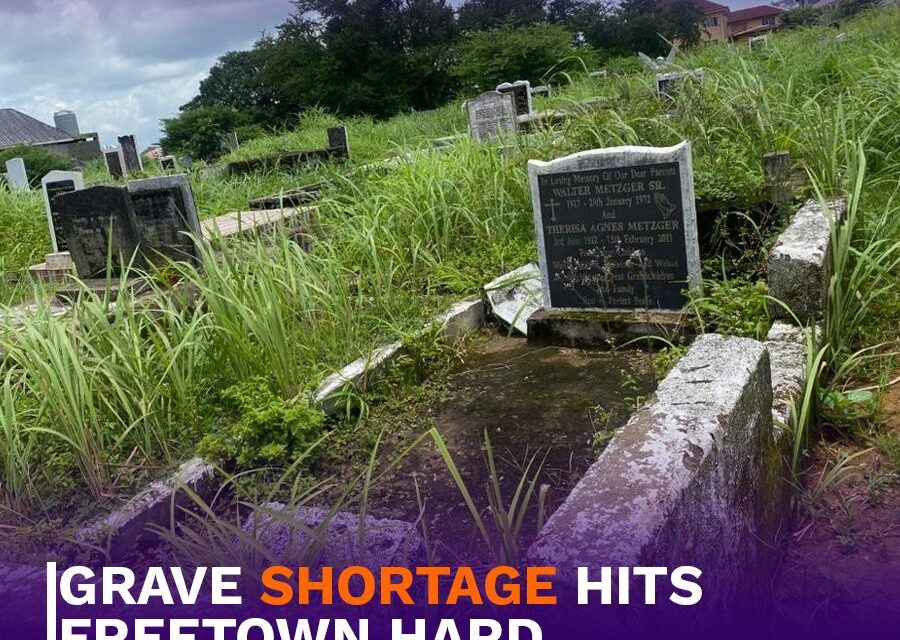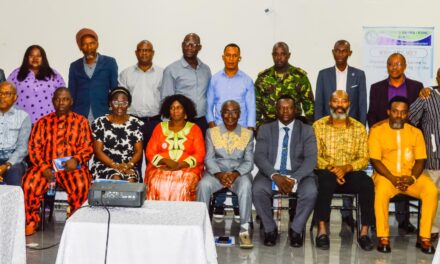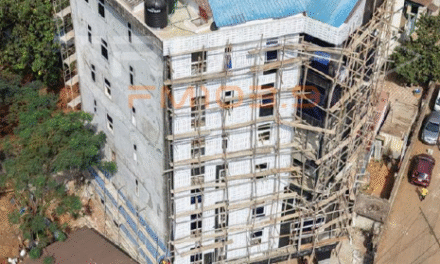By Davida Spaine-Solomon
Freetown, September 22nd 2025 – As the city grapples with an increasing number of burials, a new challenge is looming: cemeteries are running out of space. Families mourning their loved ones are now confronted with a heartbreaking reality: finding a final resting place is no longer guaranteed.
At Ascension Town Cemetery, one of Freetown’s oldest burial grounds, the situation is alarming. “The cemetery has long been filled. There’s no more space available,” confirmed Mohamed Marrah, Clerk of Ascension Town Cemetery.
Marrah explained that only families with existing graves can still bury their loved ones there. “We encourage families to go to the Freetown City Council to register their graves and pay for them yearly. Once registered, you will receive a code for your grave,” he added, noting that the cemetery is highly guarded to prevent encroachment or illegal burials.
But this policy is drawing criticism. For many citizens, the message feels exclusionary – a painful reminder that those without money or family-owned plots are left with limited options. Some residents accuse the authorities of failing to plan for the city’s growth, allowing a crisis to brew.
Responding to the growing concern, Georgiana Johnson, Deputy Environment and Sanitation Officer at the Freetown City Council, admitted that Ascension Town Cemetery is full, citing limited land space as the cause.
“Most of the Krio people have secured burial spaces for their loved ones at Ascension Town Cemetery,” Johnson said. “When you have a funeral, you must come to the City Council to secure a grave space. You will receive the total amount to be paid at the bank, after which a receipt will be issued. If you choose to own a grave space, you will also need to pay yearly to FCC to maintain that ownership.”
Johnson confirmed that the Council is actively maintaining cemeteries, noting that “brushing” the clearing of overgrown vegetation was last done in May and June and has resumed this September. “Grass grows very fast during the rainy season, partly due to the human remains beneath the soil surface,” she explained.
Residents, however, say this is not enough. The lack of long-term planning, they argue, is forcing grieving families into desperate situations.
“This is heartbreaking,” said Ramatu Sesay, a mother of three who recently buried her father. “We had to struggle for days to find a grave space. It feels like even in death, there is no rest.”
Community activist Derrick Conteh called for urgent action. “The government and the City Council must think ahead. Freetown’s population is growing, and so will deaths. We cannot wait until every cemetery is full before acting. We need new burial grounds now,” he said.
While Johnson reassured that there are still spaces at Kingtom, Circular Road, Ross Road, and Lumley cemeteries, she did not comment on whether there are plans to create new burial grounds a silence that leaves many worried.
As the city continues to expand, the question remains: where will Freetown bury its dead tomorrow? Without a comprehensive plan, today’s cemetery crisis could soon turn into a humanitarian and public health emergency.









